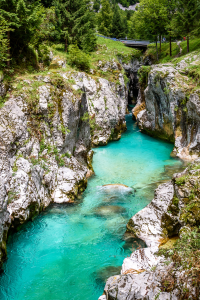Introduction
Ecotourism is a type of responsible travel that involves exploring natural areas while minimizing the negative environmental impact and supporting the conservation of local wildlife and communities. It provides an opportunity to learn about different cultures, promotes sustainable development, and appreciates nature’s beauty while positively impacting the environment.
This article aims to highlight the importance of ecotourism and how it can benefit both tourists and local communities.

Definition and Principles of Ecotourism
Ecotourism is a type of sustainable tourism that emphasizes responsible travel to natural areas that conserve the environment, preserve cultural heritage, and support local communities.
The International Ecotourism Society (TIES) defines ecotourism as “responsible travel to natural areas that conserves the environment, sustains the well-being of the local people, and involves interpretation and education.” The principles of ecotourism include minimizing the negative impact on the environment, supporting conservation efforts, respecting local cultures and traditions, and providing economic benefits to local communities

Benefits of Ecotourism
Ecotourism can provide numerous benefits to both tourists and local communities. For tourists, it offers an opportunity to explore unique natural areas and cultural heritage while supporting sustainable development and conservation efforts. Ecotourism also provides an opportunity for education and learning about different cultures and the environment. Moreover, ecotourism can enhance personal growth and promote a sense of responsibility towards the environment and local communities.
For local communities, ecotourism can provide economic benefits through the creation of employment opportunities, the promotion of local businesses, and the preservation of cultural heritage.
Ecotourism can also promote conservation efforts and contribute to the sustainable development of local communities. By supporting ecotourism, local communities can also strengthen their cultural identity and promote the preservation of their traditional ways of life.

Challenges of Ecotourism
Despite the numerous benefits of ecotourism, there are also challenges that need to be addressed. One of the challenges is the negative impact of tourism on the environment, particularly in areas that are not well managed. Ecotourism can also lead to cultural conflicts and exploitation of local communities if not properly managed. Moreover, ecotourism can create dependency on tourism and affect traditional ways of life and cultural heritage.
To address these challenges, ecotourism must be managed responsibly with a focus on sustainable development, conservation, and community involvement. Effective management strategies include the development of ecotourism guidelines and the involvement of local communities in decision-making. And the promotion of responsible tourism practices.

Examples of Ecotourism
Ecotourism can take various forms, ranging from wildlife safaris to cultural immersion tours. Some popular examples of ecotourism include:
- Wildlife Safaris: Wildlife safaris provide an opportunity to explore natural areas while observing local wildlife in their natural habitats. Safari tours are often conducted in protected areas such as national parks and reserves. And they provide an opportunity to learn about conservation efforts and wildlife management.
- Cultural Immersion Tours: Cultural immersion tours provide an opportunity to learn about different cultures and traditions while supporting local communities. These tours often involve staying with local families, participating in cultural activities, and learning about local crafts and traditions.
- Sustainable Accommodations: Sustainable accommodations, such as eco-lodges and campsites, provide an opportunity to experience natural areas. While minimizing the negative impact on the environment. These accommodations often use renewable energy sources, minimize waste production, and support local communities.

Conclusion
Ecotourism offers an opportunity to explore natural areas while supporting sustainable development, conservation efforts, and local communities. Ecotourism can provide numerous benefits to both tourists and local communities.




